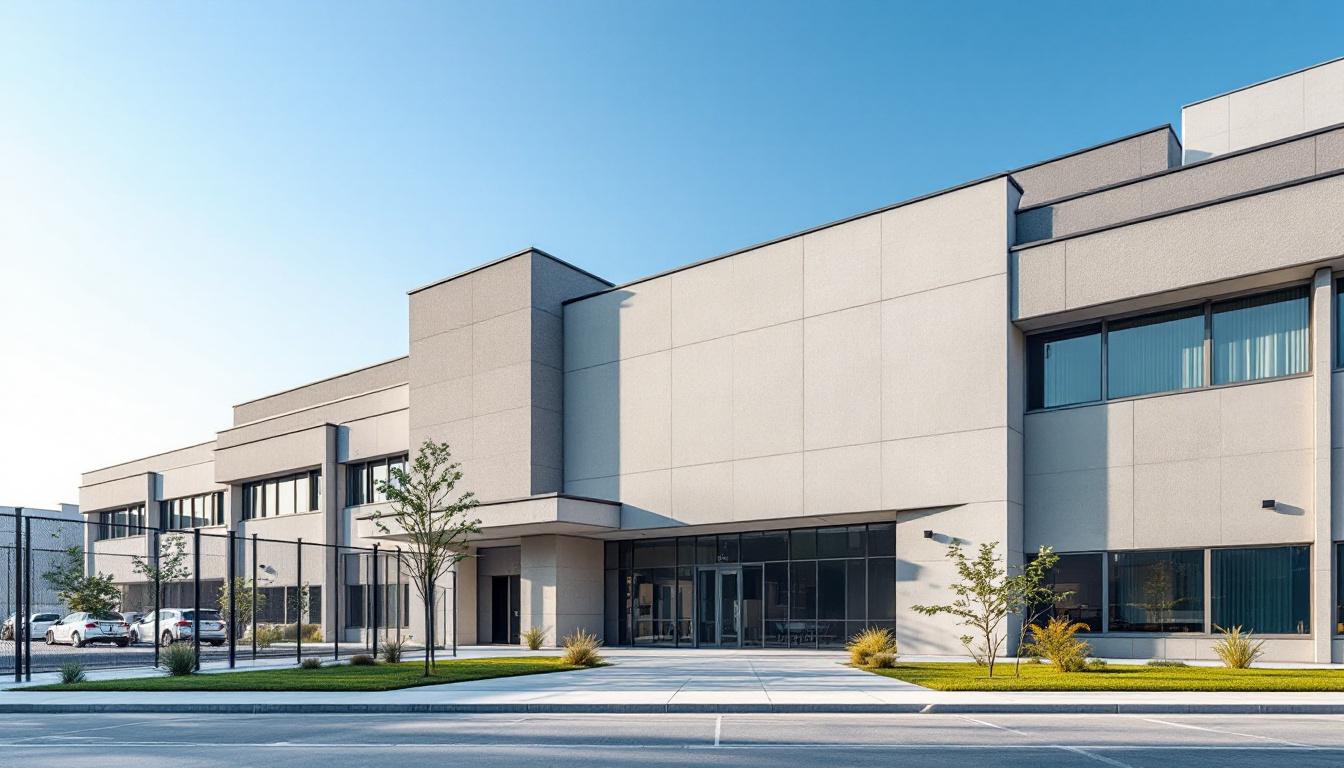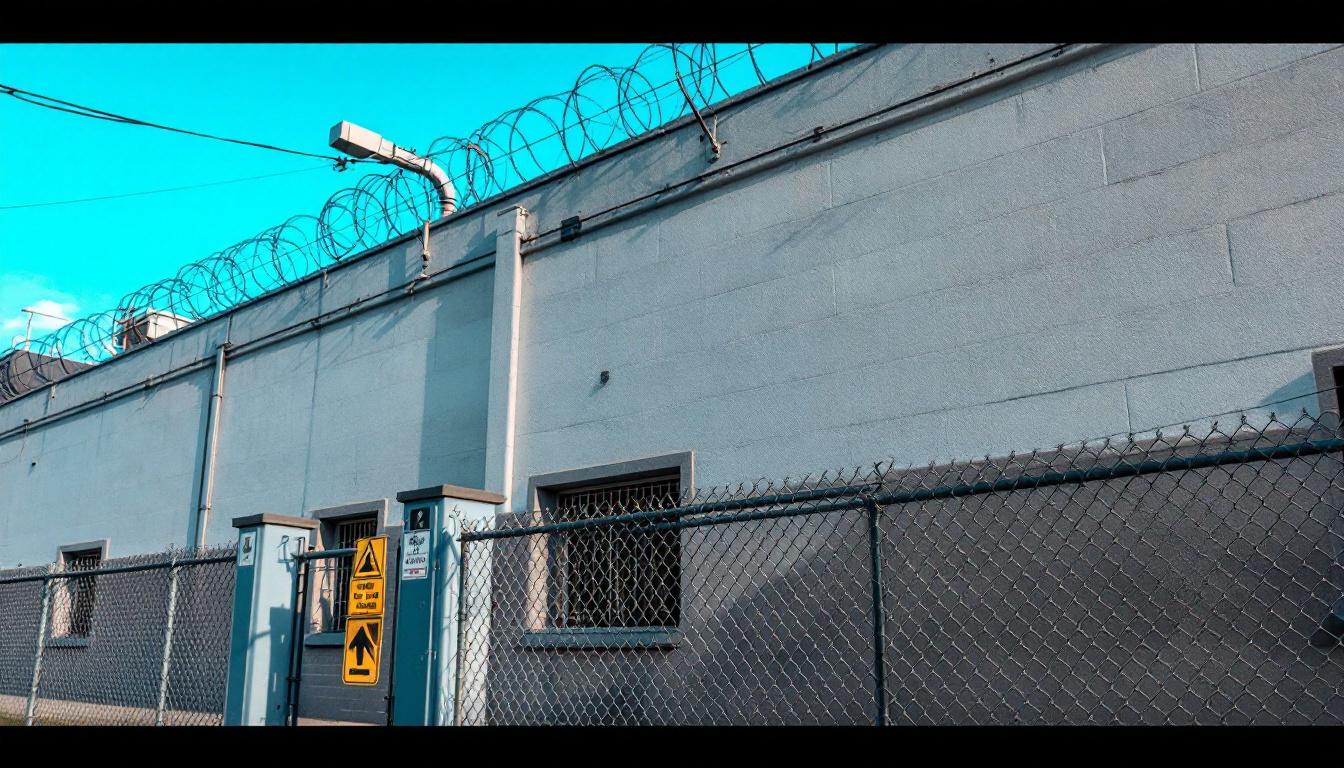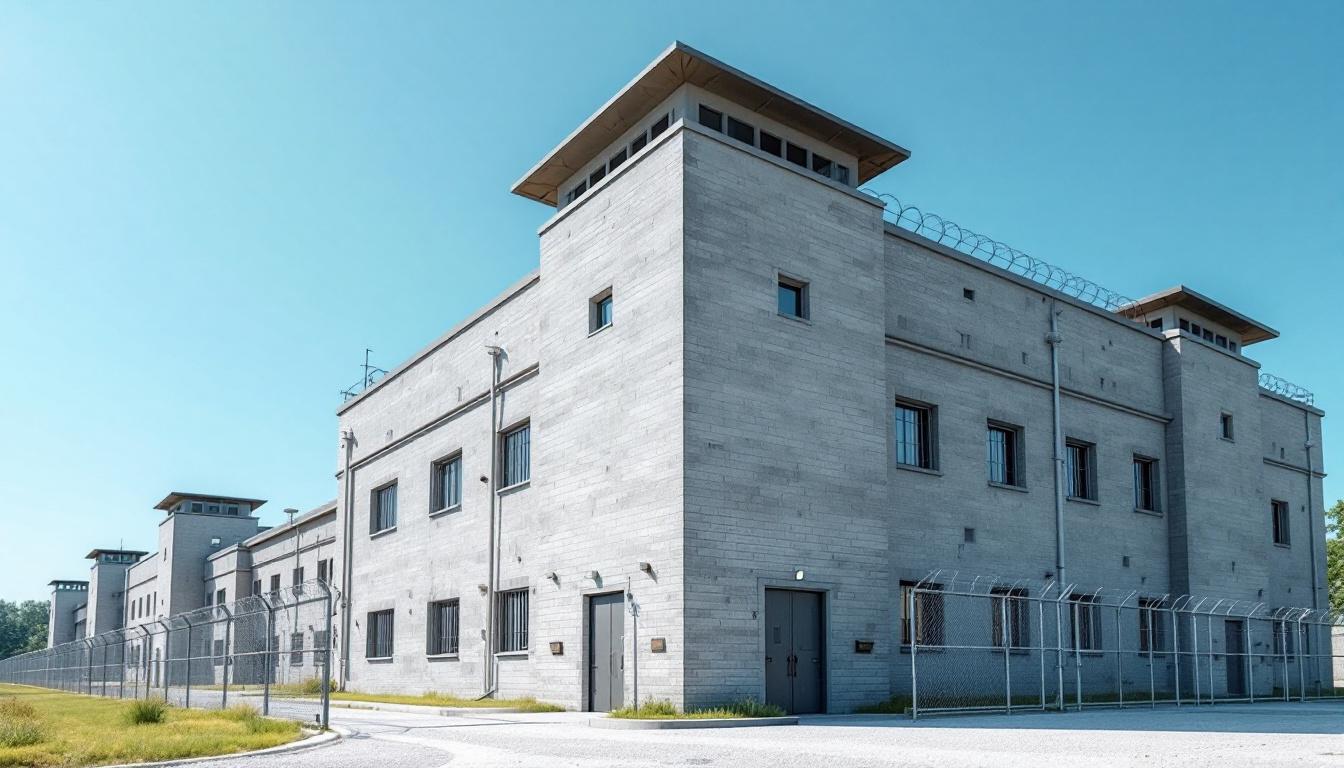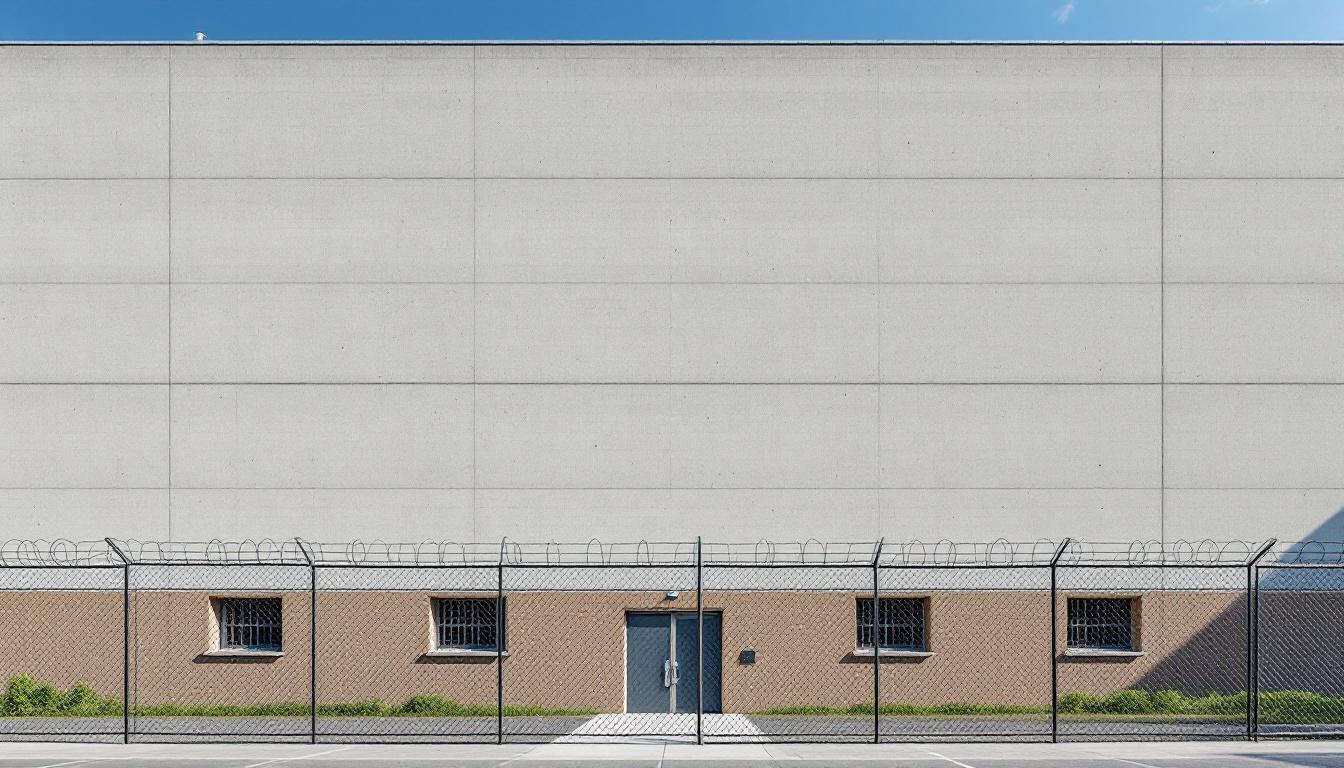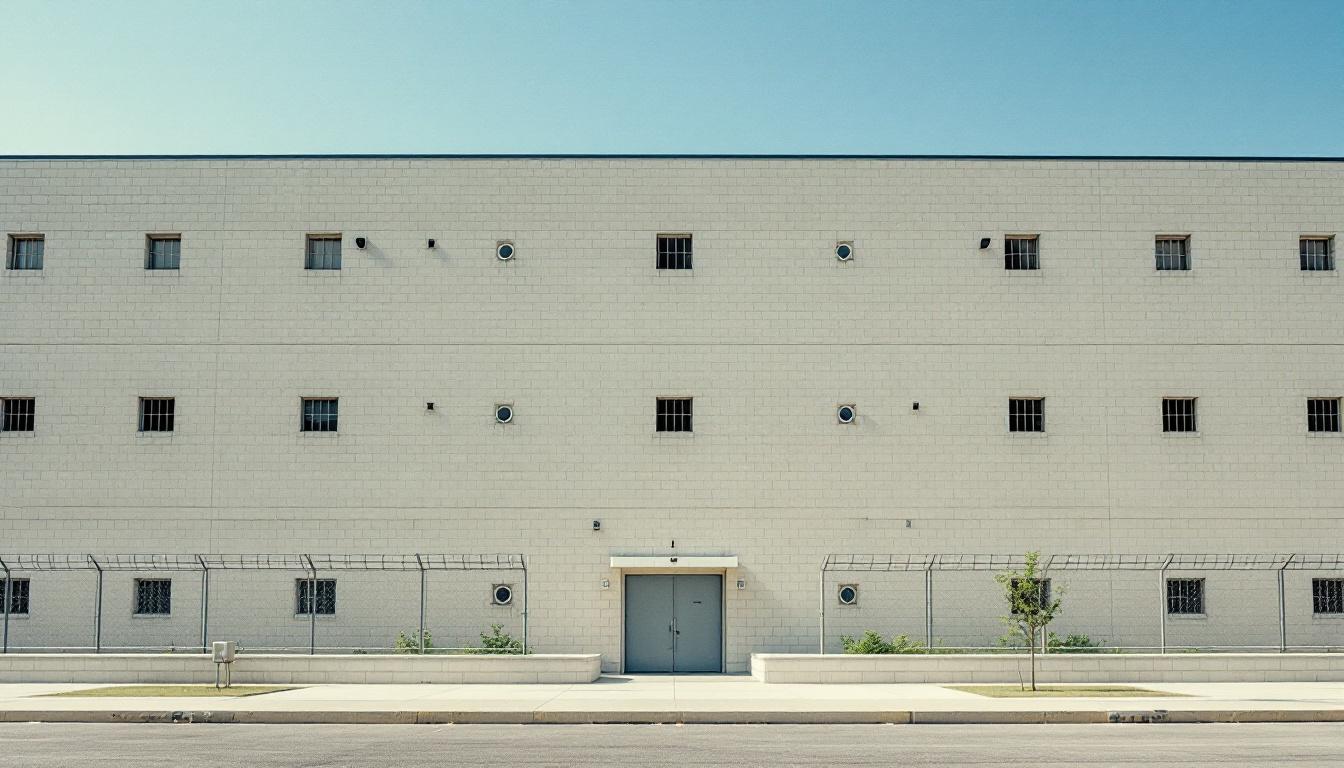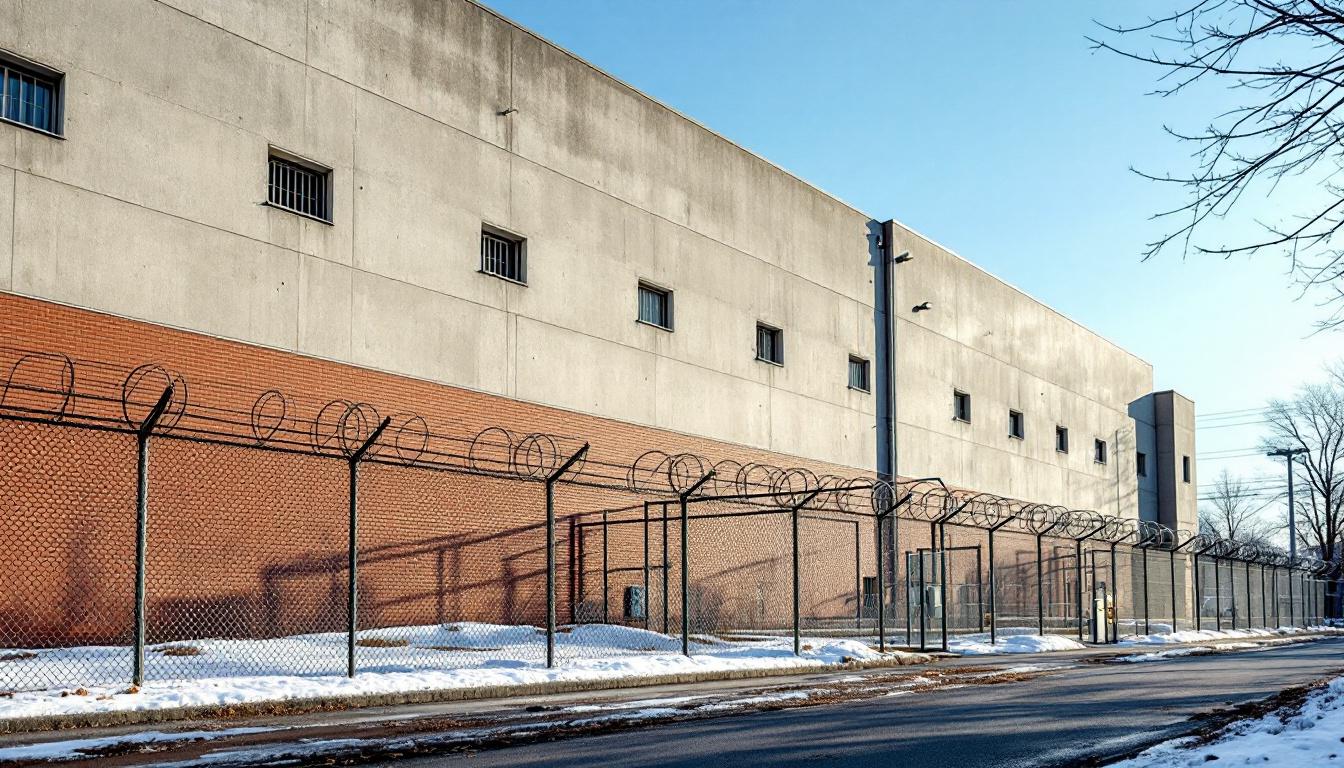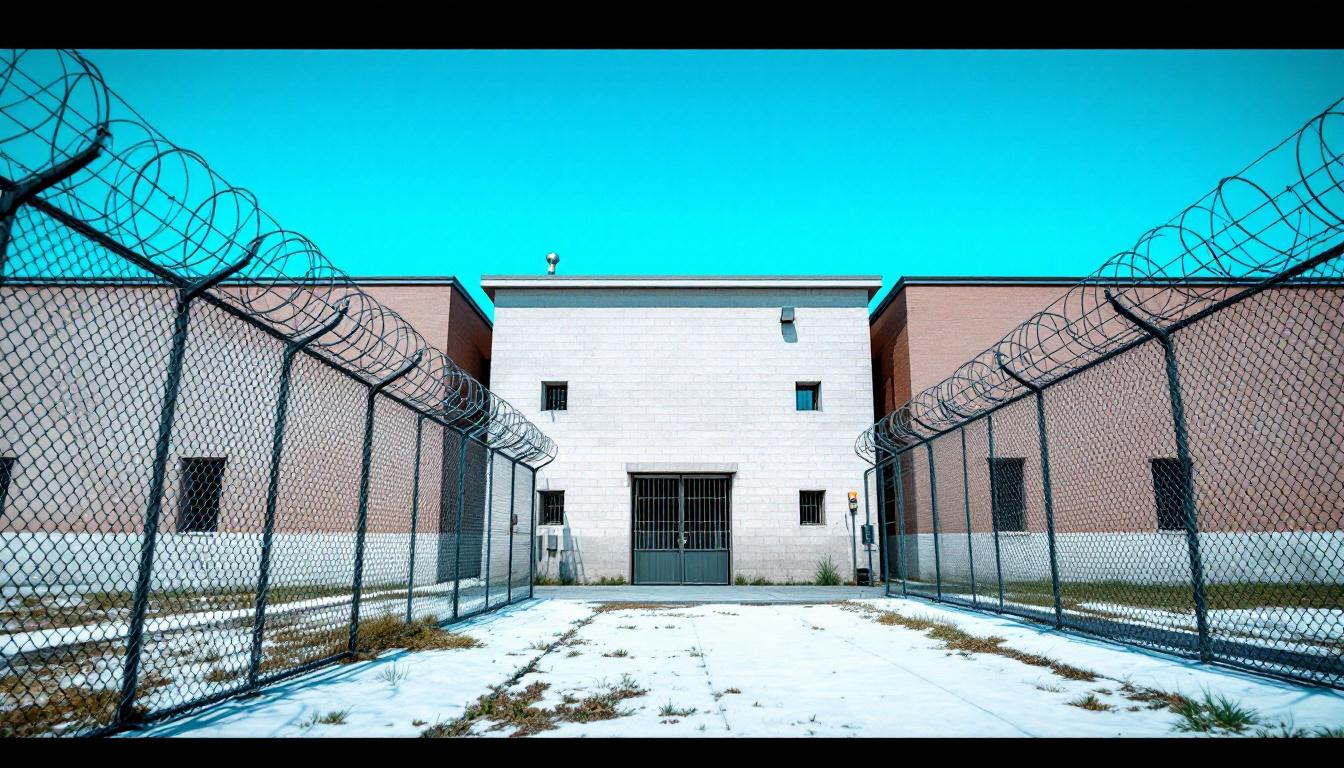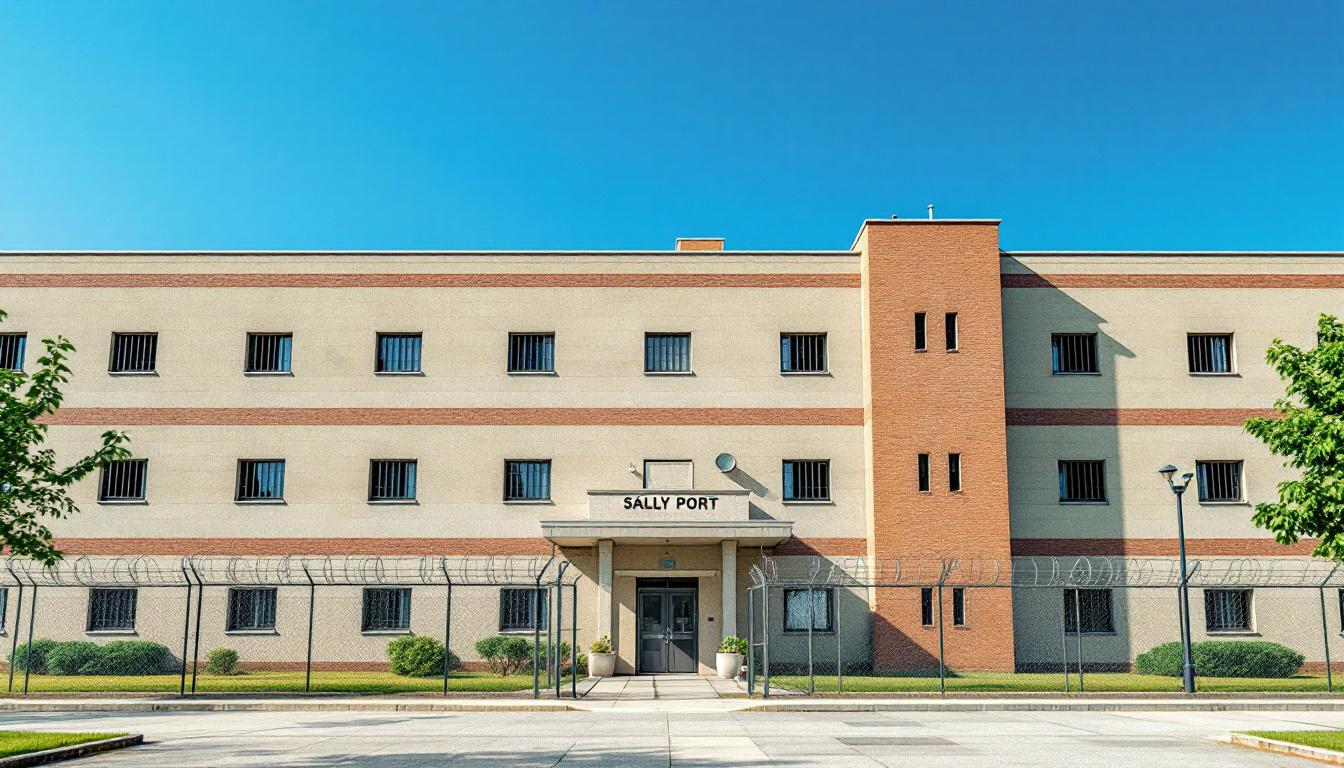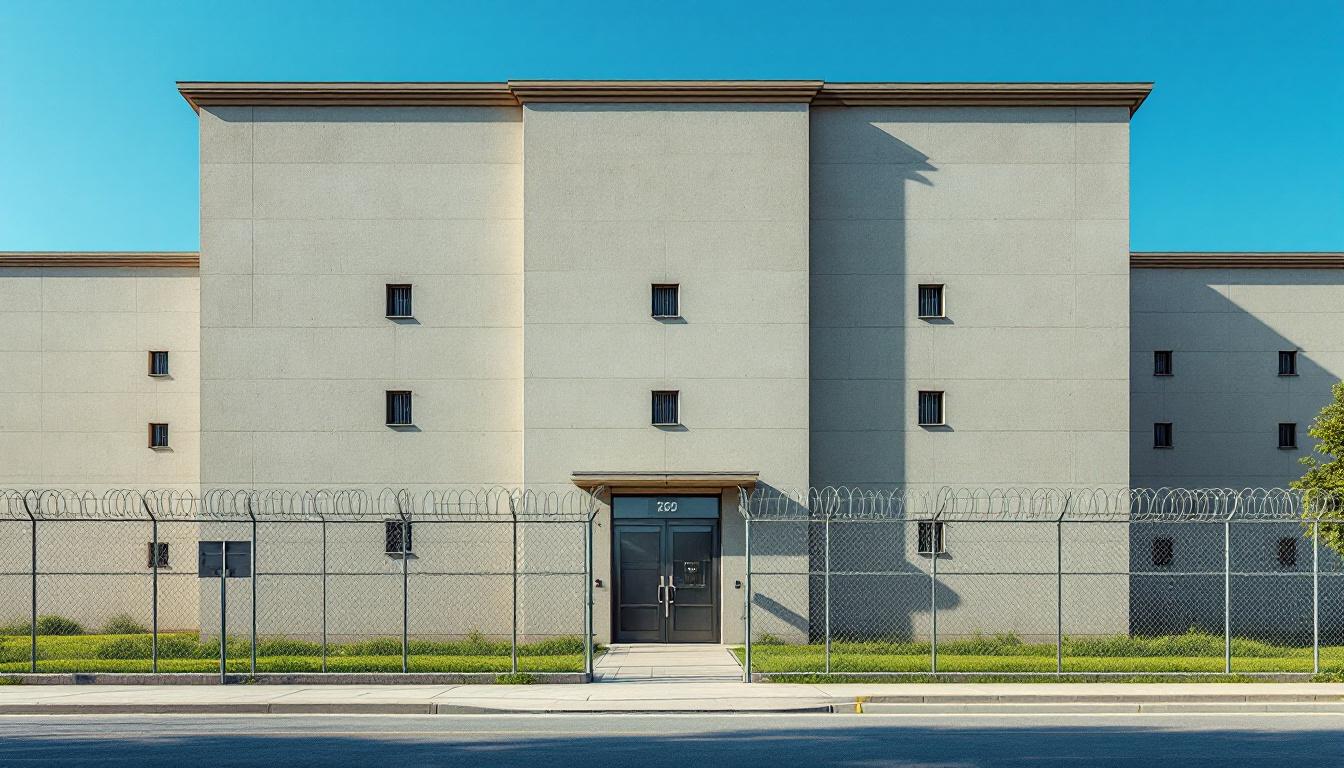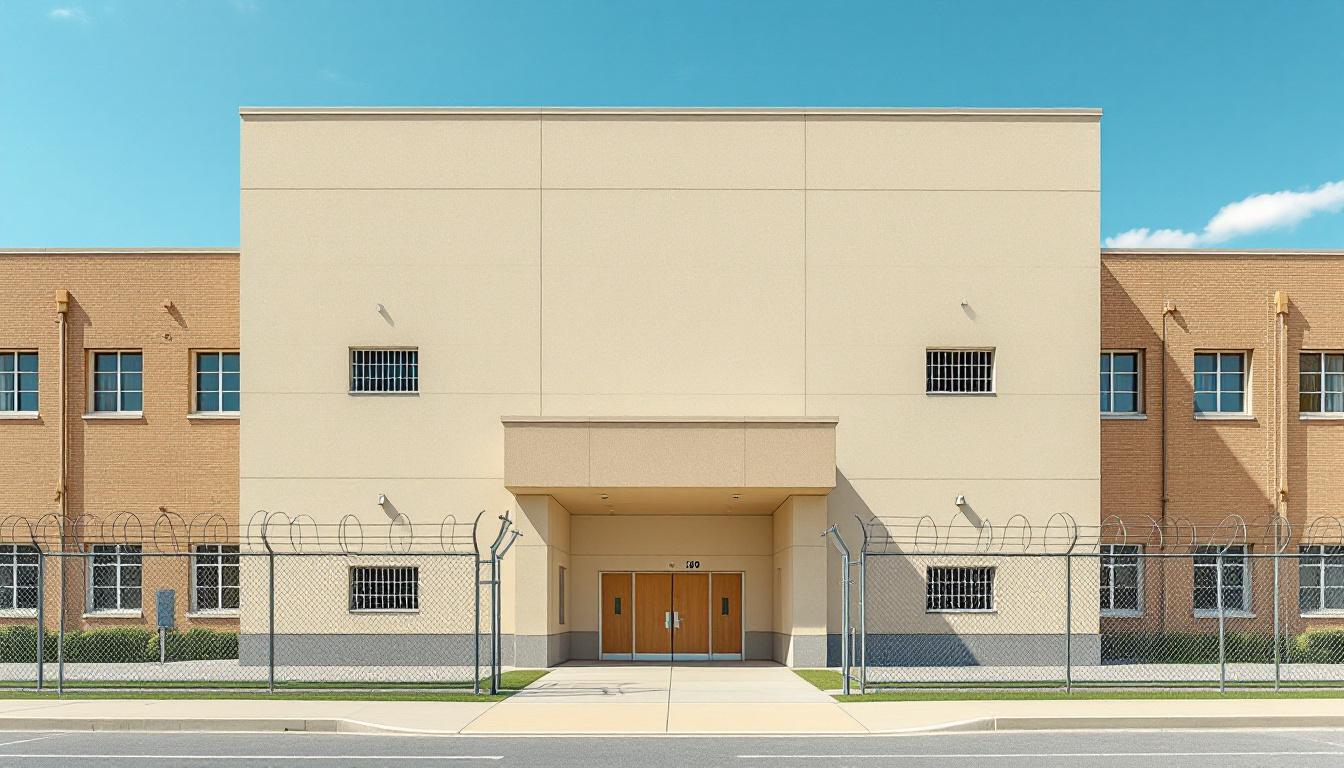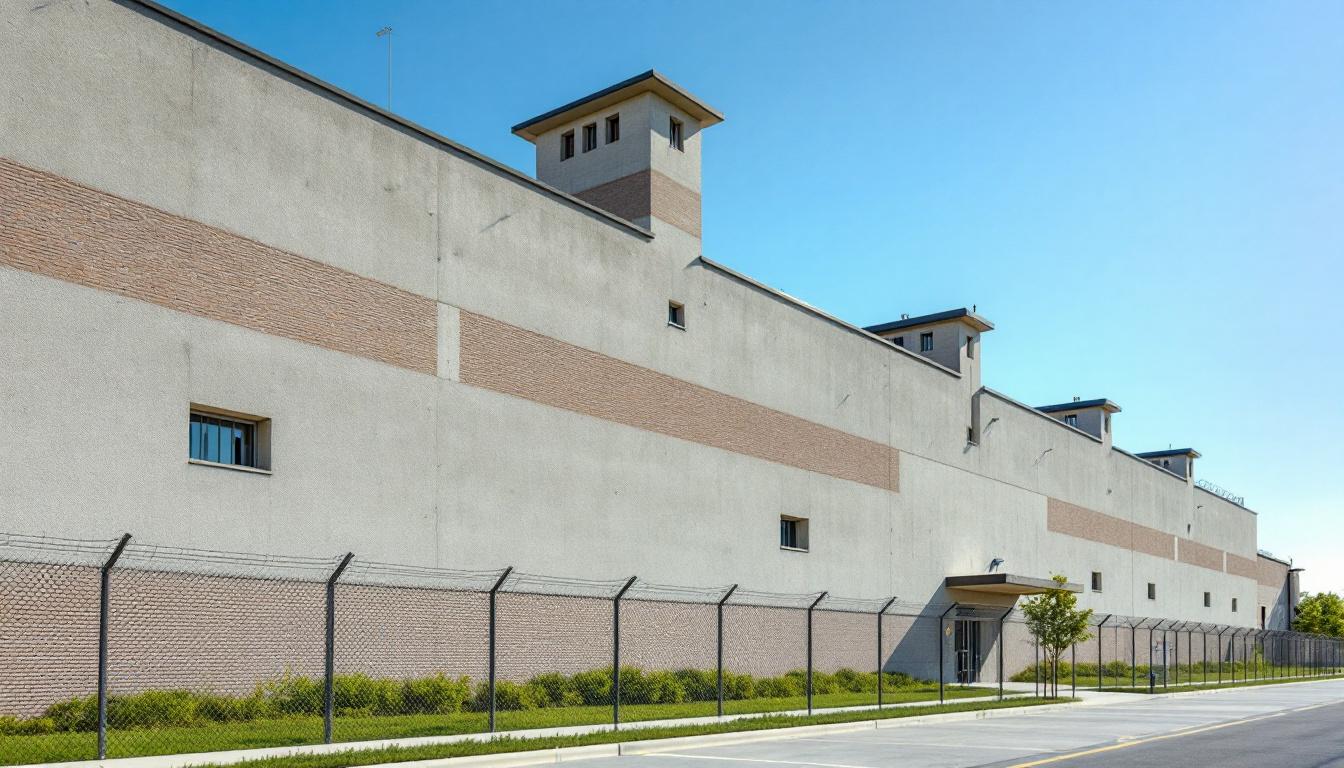
Quick Navigation
How to contact an inmate at Nottoway Correctional Center
This comprehensive guide will walk you through how to connect with an inmate at Nottoway Correctional Center. Follow the steps below to find an inmate and send letters and photos:
- Search for the inmate using our search tool below
- Create your account or log in to Penmate
- Write your message (up to 6,000 characters)
- Send instantly - inmates receive printed copies daily
Find an Inmate
Search for an inmate to start communicating today
Tip: You can search by first name, last name, or inmate ID number
To contact a person at Nottoway Correctional Center start by searching for the person on the official facility website. Perform a search by following these steps:
- Step 1: Enter their first name and last name into the search form and click "Search"
- Step 2: Locate their inmate record
- Step 3: Write down their Inmate ID and any housing information provided
Important! Be sure to enter the person's full name. Nicknames should not be used.
How to Send Messages to Inmates

You can use your phone or computer to send emails, letters, and photos to an inmate. Messages are sent electronically to inmate tablets or kiosks at the facility. If you would like to send a message, start by searching for an inmate at Nottoway Correctional Center.
Sending Photos and Postcards

A great way to send love and support to a loved one at Nottoway Correctional Center is to send photos and postcards. It only takes a few minutes to send photos from your phone and it makes a huge difference. You can also mail postcards with words of support and inspiration, or design your own postcard for special moments like birthdays and holidays.
Important! Be sure not to send any explicit photos or they may not be approved by the facility. You can also use a photo printing app like Penmate to make sure your photos are printed at the correct size (4x6 or 3x5) and are mailed according to the rules and regulations of Nottoway Correctional Center.
Frequently asked questions about Nottoway Correctional Center
-
How long does it take to deliver a message?
If you're sending an email message your letter is usually delivered within 24-48 hours. For messages sent via mail you should expect delivery within 3-7 days. All messages will need be approved by Nottoway Correctional Center.
-
How much does it cost to send a message to Nottoway Correctional Center?
You can send a message free using your phone or mail a message via USPS for the price of a $0.60 stamp and envelope. You can also purchase credits or e-stamps from services starting at $1.99.
-
What services can I use to contact an inmate at Nottoway Correctional Center?
Penmate
You can use Penmate to send letters and photos to an inmate from your phone. It's an easy way to stay in touch during your loved one's incarceration. Use the inmate locator to find an inmate's location and contact information, then you can send messages within a few minutes.
Securus messaging
Securus may be another option for communicating with an inmate at Nottoway Correctional Center. You can create a friends and family account and purchase credits to send messages. All messages will be reviewed and must be approved by the facility.
JPay
Some county jails and state prisons may support sending messages with JPay. You must register an account with the system, find your loved one, and purchase stamps to send messages. For some locations you can also attach photos.
Smart Jail Mail
You may also check if Smart Jail Mail is available at Nottoway Correctional Center. Smart Jail Mail is operated by Smart Communications and has contracted with some state and county jails. After purchasing credits, your messages and photos are sent to the facility, printed out, and then handed out to your loved one.
-
What is the mailing address of Nottoway Correctional Center?
Mailing address:
Nottoway Correctional Center
2892 Schutt Rd
Burkeville, VA 23922
Phone: (434) 767-5543Business hours:
- Monday: 8:15 AM – 5:00 PM
- Tuesday: 8:15 AM – 5:00 PM
- Wednesday: 8:15 AM – 5:00 PM
- Thursday: 8:15 AM – 5:00 PM
- Friday: 8:15 AM – 5:00 PM
- Saturday: Closed
- Sunday: Closed
-
What are the visiting hours at Nottoway Correctional Center?
Visiting hours at Nottoway Correctional Center vary by housing unit and security level. Generally, visits are scheduled on weekends and holidays, with some facilities offering weekday visits. Contact the facility directly at (434) 767-5543 or check their website for the current visiting schedule. Visits typically last 30-60 minutes and must be scheduled in advance.
-
What items are prohibited when sending mail to Nottoway Correctional Center?
Prohibited items typically include: cash, personal checks, stamps, stickers, glitter, glue, tape, staples, paperclips, polaroid photos, musical or blank greeting cards, hardcover books, magazines with staples, and any items containing metal or electronics. Only send letters on plain white paper with blue or black ink. Photos must be printed on regular photo paper (no Polaroids). Always check with Nottoway Correctional Center for their specific mail policies.
-
How do I send money to an inmate at Nottoway Correctional Center?
You can send money to an inmate at Nottoway Correctional Center through several methods: 1) Online using JPay, Access Corrections, or the facility's approved vendor, 2) Money orders mailed directly to the facility with the inmate's name and ID number, 3) Kiosks located in the facility lobby, or 4) Over the phone using a credit or debit card. Fees vary by method, typically ranging from $2.95 to $11.95 per transaction.
-
Can I schedule a video visit with an inmate at Nottoway Correctional Center?
Many facilities now offer video visitation as an alternative to in-person visits. At Nottoway Correctional Center, video visits may be available through services like Penmate, Securus Video Connect, GTL, or ICSolutions. Video visits typically cost $10-20 for 20-30 minutes and must be scheduled in advance. You'll need a computer or smartphone with a camera and reliable internet connection. Contact the facility for their specific video visitation policies and approved vendors.
-
What identification do I need to visit an inmate at Nottoway Correctional Center?
All visitors must present valid government-issued photo identification such as a driver's license, state ID, passport, or military ID. Minors must be accompanied by a parent or legal guardian who can provide the minor's birth certificate. Some facilities require visitors to be on the inmate's approved visitation list, which may require a background check. Contact Nottoway Correctional Center for specific ID requirements and visitor approval procedures.
-
How can I find out an inmate's release date?
To find an inmate's release date at Nottoway Correctional Center, you can: 1) Use the online inmate search tool if available, 2) Call the facility's records department, 3) Contact the inmate's case manager or counselor, or 4) Have the inmate provide this information during a call or visit. For privacy reasons, some facilities only release this information to immediate family members.
Facility Overview
Contact Information
Nottoway Correctional Center2892 Schutt Rd
Burkeville, VA 23922
Phone: (434) 767-5543
Official Website
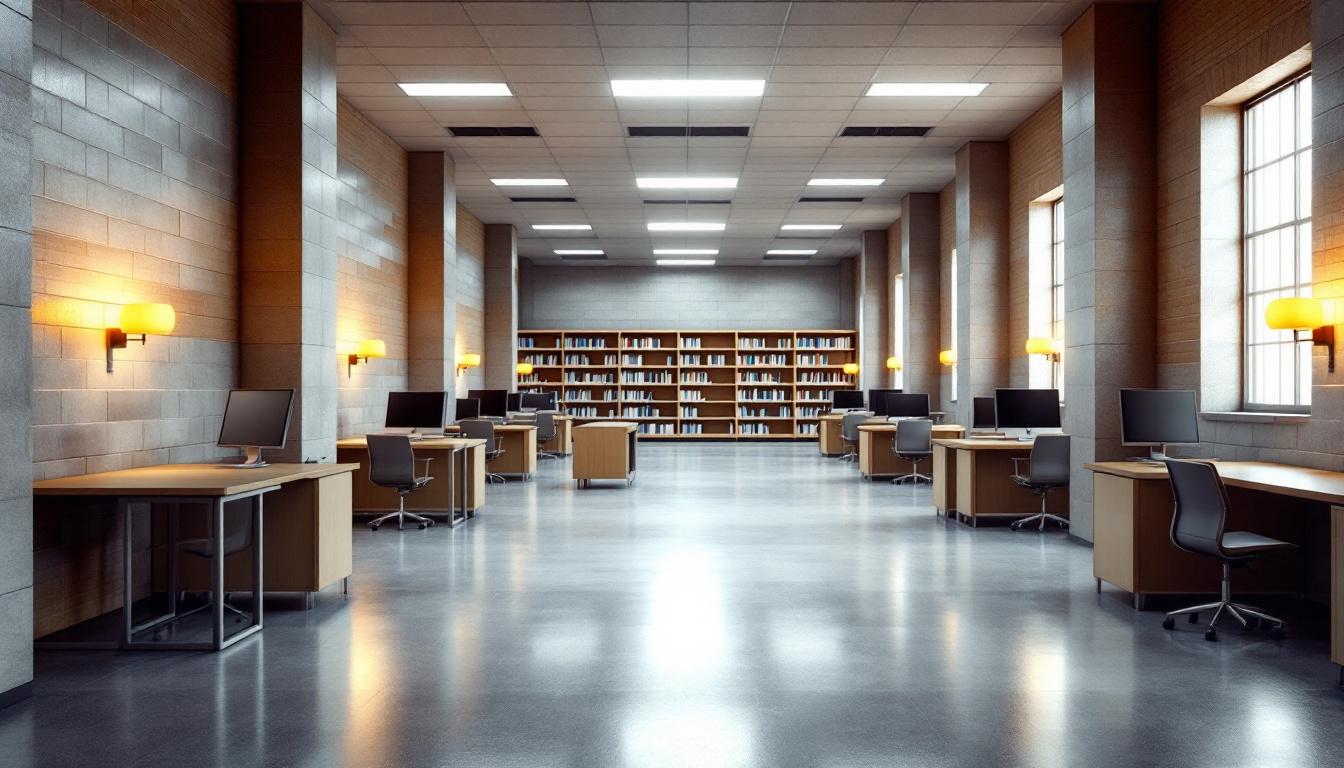
About Nottoway Correctional Center
Within the rural landscape of Burkeville, Virginia, community safety and individual transformation intersect through comprehensive correctional services that extend far beyond traditional incarceration. Greensville Correctional Center serves as a vital component in Virginia's commitment to both public protection and offender rehabilitation, operating programs designed to address the complex needs of those within the state correctional system. The facility's approach typically emphasizes structured environments where inmates services encompass educational opportunities, vocational training, and behavioral programming that may support successful community reintegration.
This VA correctional facility generally maintains operations that balance security protocols with rehabilitative programming, recognizing that effective corrections involves preparing individuals for eventual return to their communities. Programs often include substance abuse counseling, mental health services, and work assignments that may help develop practical skills and work habits. The correctional facility typically coordinates with various state agencies and community organizations to provide resources that address underlying factors contributing to criminal behavior, while maintaining the secure environment necessary for public safety.
Located in rural Southside Virginia, the facility operates within a regional context that values both accountability and second chances, reflecting broader community perspectives on justice and rehabilitation. Staff members generally work to implement evidence-based practices that may reduce recidivism while ensuring institutional safety, contributing to the state's overall correctional mission of protecting communities while providing opportunities for positive change among the incarcerated population.
Programs & Services
Personal transformation lies at the heart of the comprehensive rehabilitation framework that guides service delivery at Greensville Correctional Center. Rather than merely providing custodial care, the facility emphasizes fostering individual growth through carefully structured interventions designed to address the multifaceted needs of its inmate population. This holistic approach recognizes that meaningful change occurs when individuals are equipped with both practical skills and the psychological tools necessary to navigate life's challenges more effectively.
The facility's educational and vocational services typically form the cornerstone of its rehabilitative efforts, offering inmates pathways to develop marketable competencies while incarcerated. Education programs may provide opportunities for inmates to pursue academic advancement, from basic literacy instruction to more advanced coursework that can lead to credential completion. Moreover, vocational training services often include specialized instruction in practical trades, with painting and decorating programs frequently available to help inmates acquire hands-on skills that translate directly to employment opportunities upon release.
Complementing these skill-building initiatives, Greensville's therapeutic and support services address the underlying behavioral and cognitive patterns that may have contributed to criminal behavior. Anger management services typically provide structured interventions to help inmates develop healthier emotional regulation strategies, while cognitive behavioral programs often focus on reshaping thought patterns and decision-making processes. Library services may offer both recreational and educational resources that support ongoing learning, creating an environment where personal development can flourish through self-directed exploration and study.
Daily Life & Visitation
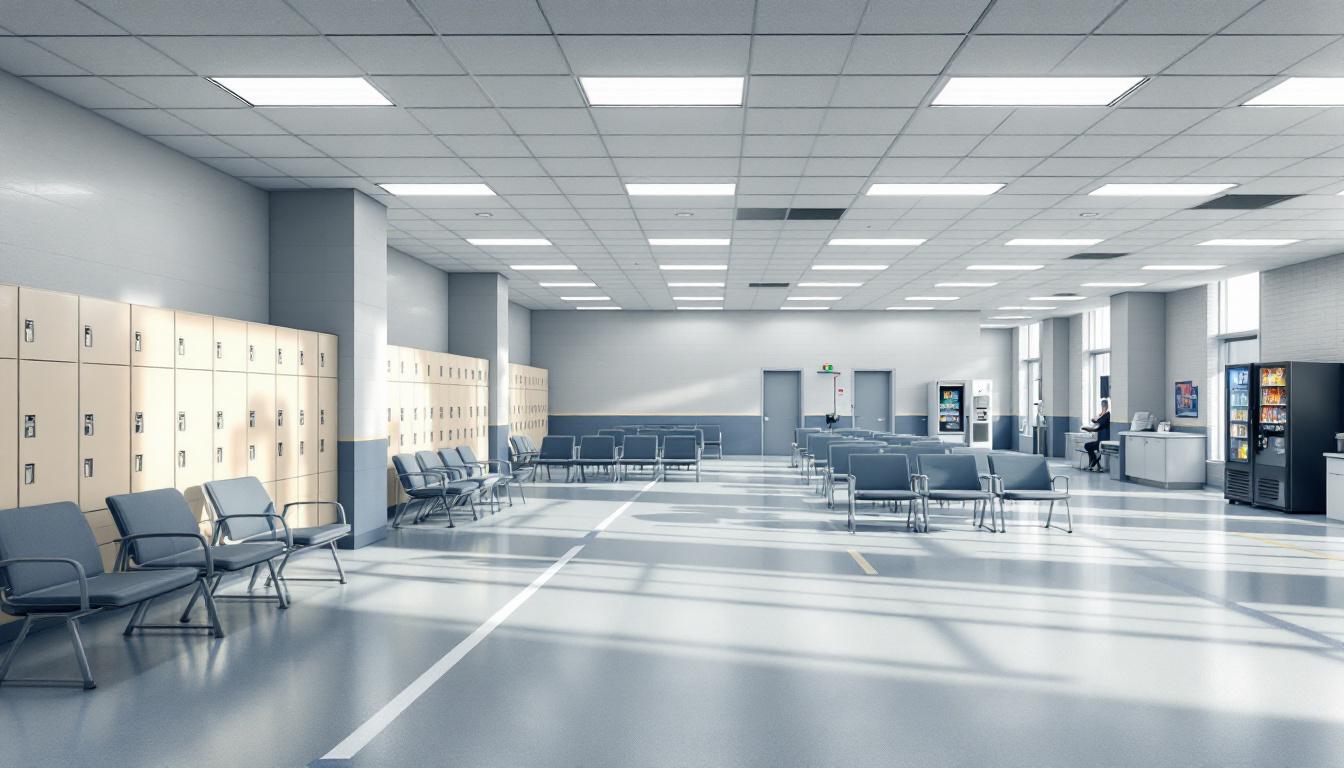
Behind the secure perimeter of Greensville Correctional Center, the structured environment of housing units and common areas shapes every aspect of an inmate's existence, where adaptation becomes essential for navigating the regimented atmosphere. Inmates now find themselves operating within a carefully orchestrated daily framework that typically begins with early morning counts and regularly moves through scheduled meal times, work assignments, and evening lockdown procedures. The facility generally maintains consistent routines that provide structure, with inmates learning to organize their personal time around mandatory activities such as meals, work details, and periodic security checks.
Living accommodations typically consist of shared cells or dormitory-style housing units, where inmates must adapt to limited personal space and the constant presence of others. Each housing area usually provides basic furnishings including beds, storage areas, and shared bathroom facilities, while inmates may purchase additional comfort items through the commissary system when funds are available. Moreover, the dining arrangements generally involve scheduled meal times in common areas, where inmates gather for breakfast, lunch, and dinner that are prepared in the facility's kitchen, creating opportunities for social interaction within the controlled environment.
The facility typically offers various recreational activities and structured programming that provide inmates with opportunities to maintain physical fitness and develop skills during their incarceration. Exercise periods may include access to outdoor recreation areas or indoor facilities, whereas educational programs and work assignments often provide structure and purpose to daily routines. Furthermore, visitation policies generally allow approved family members and friends to maintain connections through scheduled visits, while telephone access and correspondence typically enable inmates to communicate with their support networks, helping them preserve important relationships during their time at the facility.
Ready to Connect?
Start communicating with your loved one today
Search for an Inmate
